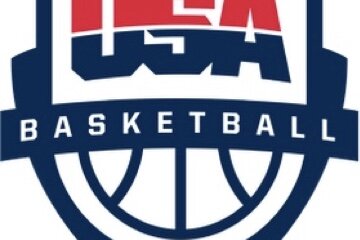It took eight long years, but the NCAA Committee on Infractions has finally passed judgment on the Syracuse basketball program, leaving a once proud program in ashes and Jim Boeheim’s Hall of Fame coaching legacy severely tarnished.
The committee also has imposed financial penalties, imposed recruiting restrictions for two years and sanctioned the school with five years of probation because of 10 self-reported violations that included academic misconduct, extra benefits, the failure to follow its drug testing policy and impermissible booster activity.
In addition, the NCAA agreed to accept the university’s self imposed decision to ban its men’s basketball team from participating in any postseason games this season, including the ACC tournament. Syracuse met with the Committee on Infractions in October. The other violations found included impermissible academic assistance and services, Boeheim’s failure to promote an atmosphere of compliance and monitor his staff, and the school’s lack of control over its athletic program.
In many ways, Boeheim was a lot like Penn State icon Joe Paterno. He was the most beloved man in Syracuse.
But now, like Paterno, we have sadly learned the emperor has no clothes.
Boeheim will get to keep his job. He’s still getting paid the same salary. And his team will be eligible for post season play next season as no current players were found to be involved. But the era of Orange dominance in basketball could be over shortly. Maintaining national power status will be all but impossible with the scholarship limitations, even for a program that plays zone.
The university recommended in its findings that one off-campus recruiter be eliminated for a six-month period during the 2015-16 season. The NCAA ultimately ruled that two coaches will be banned from leaving campus to recruit for the next two years beginning June 1. That may not be as bad as it sounds because Boeheim is currently the chairman of the US Junior National team committee and gets to observe many of the best high school talent at the youth team tryouts at Colorado Springs as well as interact with them.
With senior center Rakeem Christmas leaving and four recruits having signed a National Letter of Intent, Syracuse will be at 13 scholarships next season which is the maximum allowed by NCAA rules. The NCAA penalties would force Syrvause to keep its number of scholarship players to 10 starting with the 2015-16 season and the next three years after that. But in its decision, the NCAA indicated Syracuse can put off the reductions by a year if any student athletes have signed a national letter. That would include forwards Moustapha Diagne and Tyler Lydon and guards Frank Howard and Malachi Richardson.
But it may all but end the Orange pursuit of unsigned 6-9 power forward Thomas Bryant from Rochester, N.Y and Huntington, W. Va. Prep,. Syracuse would not be able to get a waiver to bring him in and would need four players to leave in order to sign him.
] If no current or incoming players leave the SU program, the NCAA’s scholarship reduction would leave Syracuse with 11 scholarship players in 2016-17 season. Syracuse already has a verbal commitment from Matthew Moyer, a 6-7 forward from Ohio, in the 2016 class, but Moyer is unsigned.
Another question that could impact the future of the program is the effect the sanctions will have on exceptional assistant coach/recruiter and head coach in waiting Mike Hopkins? Hopkins has had multiple opportunities to accept head coaching jobs in the past and was most recently was linked to USC in 2013, but opted to stay at his alma mater. We’re still assuming he will eventually take over, but who knows if he will choose to weather the storm?
Here’s some of the ugly details on the sanctions as released by the school.
— The University discovered that in 2004-2005, two men’s basketball and three football student-athletes received a combined total of $8,335, provided by a part-time local YMCA employee who qualified under NCAA rules as a University athletics “booster.” These monies were purportedly for work done at the YMCA, such as refereeing youth basketball games. Regardless, these monies were prohibited “extra benefits” under NCAA rules, and although these payments were isolated to one individual booster, they never should have occurred. In addition, three of these student-athletes received academic credit in the same course for internships at the YMCA they failed to complete. The University subsequently rescinded the credit.
— The University’s voluntarily-adopted Drug Education and Deterrence Program has been in place for many years, distinguishing the University from those that elect to have no drug testing or rehabilitation program for their student-athletes. Although the NCAA does not require schools to have a testing program, if one is adopted, the university must follow its terms. The University reported to the NCAA that from 2001 to early 2009 it at times failed to follow the written terms of the program with respect to student-athletes who tested positive for use of marijuana. Although these failures largely were the result of an unnecessarily complicated testing policy and did not involve performance-enhancing drugs, they constitute an NCAA violation, which the University accepts.
— The University reported that in January 2012, a men’s basketball student-athlete committed academic misconduct. The misconduct occurred when the student-athlete submitted a paper in a course he already passed in an effort to improve his course grade and restore NCAA eligibility. Per University policy, the ability to improve a previous grade is open to all students. The paper was prepared with assistance from two (now former) athletics employees, both of whom were aware their actions were improper and wrong. Their actions, done in secret, went against clear instructions that the student-athlete needed to complete the assignment on his own, and constituted a clear violation of the University’s academic integrity policy and NCAA rules. The University has acknowledged the now-former staff members’ wrongful conduct and accepts responsibility for their actions. While reviewing this matter, the University found information suggesting these same two individuals, and one tutor, may have assisted three other student-athletes with some academic assignments. Detailed information was submitted through the University’s faculty-led academic integrity process. In each case, faculty failed to find evidence supporting a violation. NCAA bylaws dictate that it must accept an institution’s academic integrity determinations. Notwithstanding, the NCAA determined the same conduct constituted an “extra benefit” to these student-athletes. The University disagrees with the NCAA’s position.
Given the academic fraud component, it should be interesting to see what the NCAA does to North Carolina where the academic scandal was far more wide spread.
Ironically, even though the violations dated back to 2001, the NCAA allowed Syracuse to keep its 2003 national championship because the school and the NCAA reportedly negotiated a statute of limitations for eligibility violations of May 4, 2003 and capped the vacated wins to that season. How do you think that will play at USC, which was forced to vacate its 2005 football championship. Syracuse must reimburse the NCAA for all revenue earned during the NCAA tournaments in 2011-2013..
Syracuse must vacate 108 wins– the most ever taken away from a program, according to Syracuse.com. As a result, Boeheim — who had only needed 34 wins to join Duke’s Mike Krzyzewski as the only coaches to reach 1,000 career wins — is left with 858, which drops him to sixth on the all-time list.
“Improper institutional involvement and influence in a student’s academic work in order to gain or maintain eligibility is a violation of NCAA rules and a violation of the most fundamental core values of the NCAA and higher education,” the NCAA’s Committee on Infractions wrote in its decision. “The behavior in this case, which placed the desire to achieve success on the basketball court over academic integrity, demonstrated clearly misplaced institutional priorities.”
Syracuse chancellor Kent Syverud said the university is considering appealing portions of the decision, and that would support Boeheim if he chose to do the same. “Although the university recognizes the seriousness of the violations it has acknowledged, it respectfully disagrees with certain findings of the Committee,” Syverud said in a statement. “Specifically, the university strongly disagrees that it failed to maintain institutional control over its athletics programs, or that men’s basketball head coach Jim Boeheim has taken actions that justify a finding that he was responsible for the rules violations.”
The NCAA finished its investigation into Syracuse athletics in late October 2014. Boeheim and football coach Scott Shafer were among the school officials to appear before the NCAA’s Committee on Infractions.
The school initiated the case, which includes academics, when it self-reported potential athletic department violations to the NCAA in 2007.
Syverud said that the university cooperated with the NCAA throughout, but “we hope everyone will agree that eight years is too long for an investigation and that a more expeditious and less costly process would be beneficial to student-athletes, public confidence in the NCAA enforcement process, and major intercollegiate athletics in general.”















